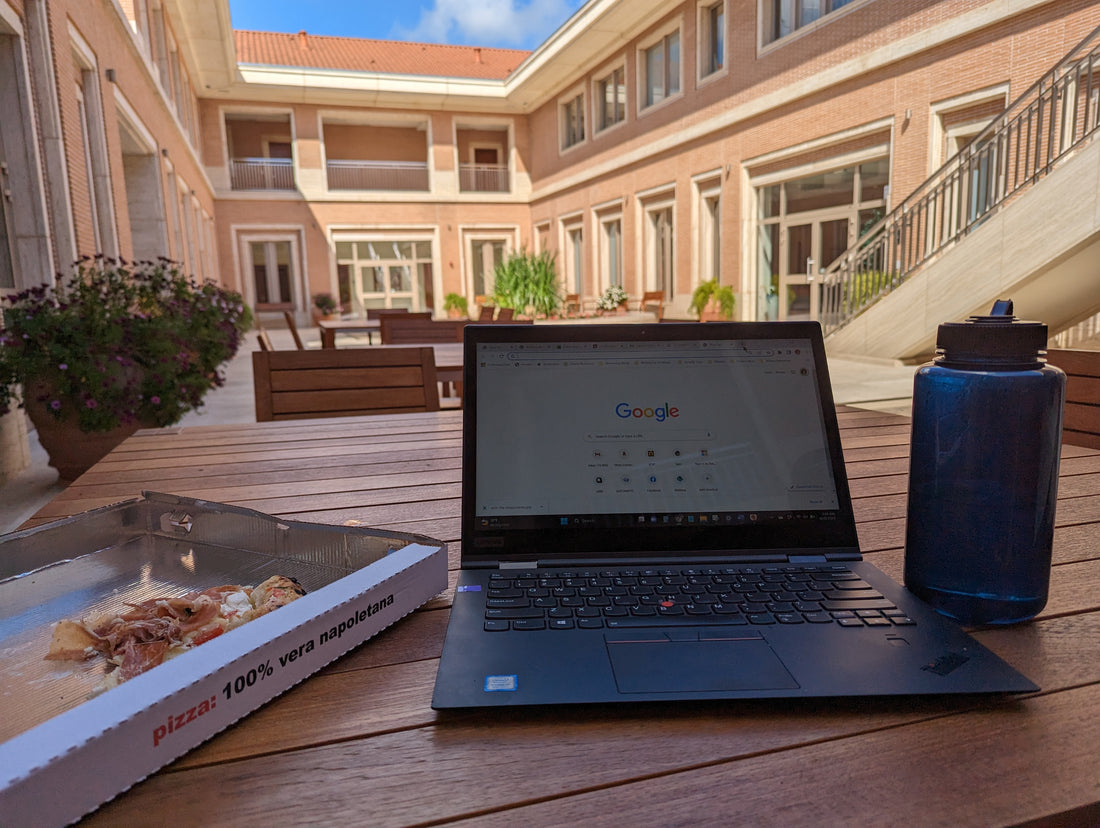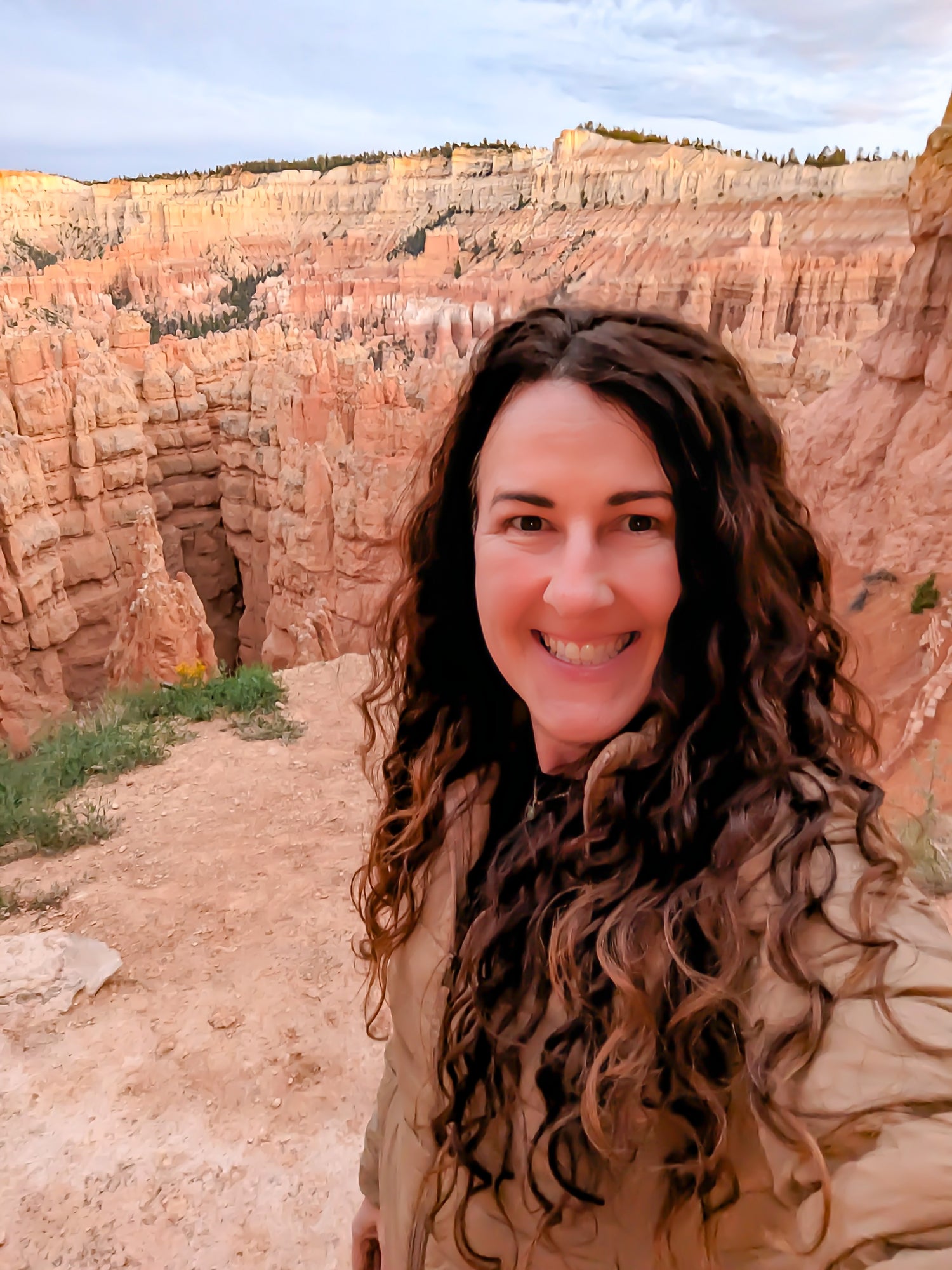Travel is more than just buying an airline ticket and hopping on the plane. If you want to get the most value for your dollar (euro, peso, yen, or whatever your form of currency is), you really must do a little bit of preparation ahead of time.
Over the years, I've used a variety of methods to enrich my travel experiences. And in this blog post, I'm going to share with you my top 7 best-kept secrets that will help you unlock your own culturally immersive experiences the next time you travel.
Secret #1: Learn The History of the Place
I can't emphasize enough the importance of learning about the history of the places you'll be visiting. Now, I'm not suggesting you become a Rhodes scholar on the topic. But you do need to put in a little time to get a basic overview of the most important historical elements.

There are a variety of ways that I suggest to do this. One of my favorites, which I have been doing recently, is checking out free courses or audio books on my public library's app, Libby. This app, according to what I just learned after doing a quick Google search, is available in 78 countries. So, look into it and see if it's an option for you. Essentially once I download the app from the Google Play Store, I just enter in my personal public library card number and now I have access to all of the digital content available. Libby has both e-books or audio books. I personally prefer the audio books because then I can listen while I multitask.

To give an example, recently while preparing for a trip to Spain, I checked out the audio book published by Great Courses titled The History of Spain: Land on a Crossroad which was written and read by Professor Joyce E. Salisbury from the University of Wisconsin-Green Bay. This was about 12 hours of listening time (I usually increase the speed in books to approximately 2x the speed to make a better use of my time) and covered 24 lessons. The course began at the beginning of history on the Iberian Peninsula and extended all the way to the present day. As I listened, I would jot down notes of interesting places she would mention (and why they were interesting) so I could include those on my travel itinerary. One idea I had while listening was to incorporate some of the people connected to New World Exploration (Ferdinand, Isabella, and Columbus) and the places they lived on my list. I most likely would not have drummed up this idea if it hadn't been for the details contained in this course!

Another way to learn about the history of a place is to watch documentaries, movies-based-on-true-stories, theatrical productions, and so forth. I cannot even tell you how many places I have added to my travel bucketlist due to various media I have watched in the past. I've written about a couple of those travel stories if you'd like to check them out:
Seeking the Bruges Madonna: Unveiling the Story of Nazi-Looted Art
Pilgrimage to Potsdam and the Bridge of Spies
Secret #2: Read Literature From the Place
Literature, both fiction and nonfiction, can really tell the story of a place like nothing else can. For that same trip to Spain, I also researched out some of the most important literary works from the region.

Miguel de Cervantes's Don Quixote was obviously a top suggestion. Did you know that this is the second-most translated book after the Bible? I'm a little ashamed of the fact that I've never read it up until this point in my life. But better late than never. From this book, I was able to gather a plethora of places to include on my itinerary and now when I visit them, the story of Don Quixote will feel like it's quite literally coming to life, even though it was written in the 1600s!

Another book I read for this particular trip was Tales of the Alhambra by Washington Irving. Now, when I visit Granada and the glorious red fortress perched on the knoll in the center of the city, I can feel like I'm stepping into one of Irving's magical tales.
There are many ways to find literature from the places you plan to visit. Conduct a Google search with such phrasing as "Most Important Literature from [location]." Be sure to include the quotation marks for better results. I also like looking at Rick Steves's website. He will often list reading suggestions for some of his featured destinations (along with movie recs too). Check out the list here!
Secret #3: Feast on the Art, Music, and Food of the Region
Every region around the world is defined by its own unique art, music, and food. But if you don't know what to look for, you'll end up missing out on all of those amazing experiences. This is why a little advance preparation is imperative!

ART: Let's talk about art first. Imagine going to Florence and not visiting Michelangelo's David in the Academia because you simply didn't know it was there. That would be an absolute tragedy. You can't expect to have the locations of every single famous work of art memorized. That is not logical or practical. But you can do a little research beforehand to find out the important works in the area you'll be visiting.
I remember years ago on a trip to Chicago, I only had a short time to visit the Art Institute of Chicago. But I did have a guidebook (DK Eyewitness Chicago) that pointed out all of the well-known works of art in the museum. So, as soon as I arrived, I asked the main desk where to find those particular pieces and went to visit them first before touring the rest of the collection. This is a great strategy and one I've implored on other trips as well.
Get a good guide book or conduct some online searches with such phrasing as "Most important works of art in [name of the city]. When I was in Madrid a few years back, I was able to use the free Prado museum tour on the Rick Steves Audio Europe app and it was fabulous. He guided me from most important painting to most important painting explaining all about each of them. I highly recommend this option as well! The app and all of the tours on it are free!
Click here for my full post that tells how to access and use this app:
Rick Steves Audio Europe App: Your Ultimate Travel Companion

MUSIC: How about music? Well, before I leave on a trip, I like to research out some of the top artists from the country. I do so with both traditional music and contemporary music. I listen to it and get a feel for what the place will be like just by what this music sounds like! I also look up music related events for when I'm there.

For instance, I was able to go to a Puccini concert in Lucca (his hometown) because I took the time to do this research before hand. While on a trip to Scotland and Ireland, I was able to attend some live music sessions in the pubs where locals hang out, because I did the research in advance, or asked locals for recommendations.

I would conduct "live music venues in [location] or "live music events in [location]" to see what's going on when you're in town! Don't forget opera if that is also your thing! Most of the major cities in Europe have opera houses and these spectacular venues should be not be missed for their glitz and glamour alone.
FOOD: The food in a region is a MUST to research ahead of time. As a matter of principle, I personally REFUSE to eat at any American-based restaurant chain when I travel. I would rather go hungry than do so. I want authentic food whenever possible. But if you don't know what authentic is for a particular place, you will waste a lot of time just trying to sort that out on the fly. Conduct some internet searches beforehand "Traditional food in [location]" to get some ideas and then look up "Best restaurants in [location] for specific eating establishments to include on your list.

I left THEATER out of the subheading, but I would 100 percent recommend doing some research on this topic as well if this is something you're interested in. I became quite a Broadway theater buff back in the day on my many trips to NYC and have also attended theatrical performances in many other cities around the world, too.
Secret #4: Research the Region's Landmarks
Some places have obvious landmarks, like San Francisco and its Golden Gate Bridge or New York and its Empire State Building. Other places might have important landmarks, but YOU may not know YET of their importance.

I'm thinking of Plaza de España in Seville. On my first trip to that city, I went on the spur of the moment and didn't have enough time to properly research the most important places to see. Because of that, I missed out on one of the top landmarks in the city, the Plaza de España. I was super disappointed, but I also knew that I could just go back and see it another time. However, that isn't always the case. This trip that you're planning might honestly be the ONLY time you're ever going to make it to this location, so you don't want to miss out on places just because you don't know about them.
Conduct some online research with phrases such as "Top landmarks in [location] or "Top sites to see in [location]." You may also want to look up guided tours to this location and see what's included on the itinerary! Obviously a guided tour will include all the top spots, so if you include their list in your self-guided tour, you'll hit all the important places. I did this exact thing when visiting Jerusalem for the first time and it worked out like a charm! Visit a City is also a great app that will give you itineraries for different lengths of stays and I have also used that app as well.
Secret #5: Discover Festivals and Events

On my first solo trip to Europe for November 2019, I was trying to figure out the places I wanted to include in my itinerary. I wanted to go everywhere, so pretty much any place I chose I would be happy with. As I was doing the research, suddenly a thought popped in my head. "Wait, when was the fall of the Berlin Wall?" I had a piece of the wall that my college roommate had given me so I hurried to go look at its plaque. Sure enough, it said "November 9, 1989." I would be in Europe for the 30th anniversary! I quickly looked up to see what was going on and found that the entire city of Berlin would be in celebration on that day. Without any haste, I placed Berlin in that spot on my travel calendar and had the time of my life at the celebration!

I've based other travel around anniversaries including Pearl Harbor's 70th Anniversary on December 7, 2011 and the 75th Anniversary of the Liberation of Auschwitz on January 27, 2020. I also attended the reenactment of the Battle of Yorktown in October 2006, an event they only hold every 25 years!
I highly recommend looking at anniversaries of historical events, cultural festivals, and religious events and seeing if any apply to the place you're visiting. Or, if they don't, you may want to base a trip around those particular happenings!
Secret #6: Listen to Interviews & Podcasts
The Rick Steves podcast is one of my very favorite travel resources. He puts out a new show every Friday and they can be accessed wherever you get your podcasts. They are also available on his website in the Rick Steves Radio Show section.
I use the radio show archives for two purposes. First, I search out all of the topics related to an upcoming trip. I listen to all of the interviews (and sometimes even the walking tours) and take notes of things I want to remember. Second, if I don't have a trip planned to a specific place, I just listen to the episodes randomly. With this strategy, I learn about new places that I might want to visit that I may have never considered before!
I can't recommend this radio show enough. I have learned so much and it has enormously benefitted all aspects of my travels!
Secret #7: Pour Over Guidebooks
When I decided to start off my university experience in Hawaii, I received some great advice from a manager at my after-school job. He said, "You really need to get a guidebook and read all about this place so you can get an idea of things you might want to see when you're there."

I wasn't going as a tourist, but this advice was hugely invaluable and I've never forgotten it. I actually still have that guidebook, which I had purchased immediately upon this manager's recommendation. I read it from cover to cover and took it with me to school. Honestly, my experience in college was so much richer because I had a solid understanding of this new place and culture I was living.
Ever since then, I have become a guide book connoisseur. Sitting on the coffee table next to me right now are three stacks of guidebooks. And those are just the ones I want to reference soon. I also have a travel trunk full of other titles, too. As of late, I have become a fan of Kindle guide books because then I can take my library with me on my phone wherever I go!

Some of my favorites are Rick Steves (obviously) and DK Travel. The former is thoroughly researched with up-to-date information. The latter is full of illustrations, maps, photos, and historical details and facts. I love them both for different reasons and they each have their purpose for me in my travel research.
Guide books are well worth the investment. Get the most recent edition, too, since you'll want to have up-to-date info on websites, prices, and phone numbers. Think about how much money you're spending on this trip you're going on. Certainly, you can buy a $15-$20 guidebook to get your most value out of your travel dollars!
What Secrets Will the Future Hold?

On each trip, I come up with new ideas for travel planning that I implement on my next trip. So, stay tuned. There just might be a second edition to this post sometime in the future!


